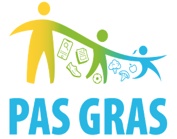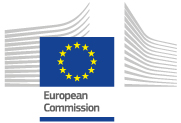PAS GRAS
De-Risking Metabolic, Environmental and Behavioral Determinants of Obsesity in Children, Adolescents and Young Adults
Challenge
Obesity in the youth is a global health problem with a clear transgenerational risk. Over 39 million (M) children, 340 M adolescents and 1.9 billion (B) adults are overweight/obese (almost 3-fold increase over the last 40 yr). This number increases to over 42 M when children younger than 5 years are included and is anticipated to increase to 70 M children by 20254,2. Contributing factors to obesity in youth include socioeconomic factors, sedentary lifestyles, ethnicity, psychological factors, mental health, and iatrogenic effects of medications such as antipsychotic drugs. However, overweight and obesity are highly preventable while current governments/healthcare initiatives are ineffective, in part because they are limited to modifying individual behaviour rather than the underlying structural drivers. PAS GRAS actions are predicated on the evidence that the drivers of obesity are multi-factorial and that effective interventions must address all factors in a concerted manner.
Solution
PAS GRAS will be centered on overweight/obese children, adolescents and young adults with the main objective of reversing obesity and preventing later-life comorbidities. PAS GRAS will determine how the lifestyle (diet, sedentary behaviours and physical activity), mental health, social/family factors, environment, interact with each person's intrinsic psychological, genetic and metabolic characteristics. Our highly qualified transdisciplinary team will incorporate these parameters to generate potent personalized risk assessment for obesity and its complications. This will be allied to the co- production of novel and better prevention and/or treatment strategies. PAS GRAS will fill critical gaps in obesity diagnosis and prognosis, early lifestyle and pharmacological intervention, obesity awareness and food/nutrition literacy, and provide a blueprint for a healthier population.
Objectives, Activities and Results expected / achieved
PAS GRAS, the groundbreaking project, focuses on combatting obesity risks and associated complications with a multifaceted approach. Its specific objectives (SO) are as follows: SO1 involves identifying metabolic, lifestyle, and socioeconomic vulnerabilities that contribute to obesity development, including transgenerational and food insecurity risks within families. SO2 aims to discover (epi)genetic and gender-specific parameters in early life that predict future obesity risks. SO3 delves into exploring novel biological pathways and circulating markers related to obesity comorbidities, shedding light on the brain's role in obesity across different ages and stages of disease.
Furthermore, the project will design and validate interventions for adults and their children using naturally-occurring compounds to mitigate intrafamilial risks (SO4). It also emphasizes the creation of participatory, engaging science-health literacy tools and physical activity programs (SO5) that promote social and gender equity, inclusion, and human rights.
PAS GRAS strategically addresses 10 of the most relevant research gaps, contributing to a potential 15% decrease in overweight/obesity prevalence in adults and 30% in children/adolescents in the EU by 2050.

Project Reference
Grant Agreement No 101080329Funding

Intervention Region
Portugal, Italy, Sweden, Spain, Germany, Poland and NetherlandsTotal Investment
9.377.421,25IPN Investment
251.250,00Total Eligible
9.377.421,25IPN Eligible
251.250,00EC Funding – Total
9.377.421,25EC Funding – IPN
251.250,00Duration
60 MonthsStart Date
2023-05-01End Date
2028-05-31Approval Date
2022-12-09Consortium
Universidade de CoimbraUniversita degli Studi di Bari Aldo Moro
Uppsala Universitet
Universidade Nova de Lisboa
Fundacio Eurecat
Consiglio Nazionale delle Ricerche
King's College London
Instituto Politecnico de Viana de Castelo
Technische Universitaet Muenchen
Instytut Biologii Doswiadczalnej im. M. Nenckiego
Instituto Pedro Nunes Associacao para a Inovacao
European Society for Clinical Investigation
Mediagnost Gesellschaft fur Forschung und Entwicklung
Martin-Luther-Universitat Halle-Wittenberg
Associacao Protectora dos Diabeticos de Portugal
Associacao de Ginastica do Centro
Keywords
Public and environmental health;Overwheight/Obesity;
Biological and Metabolic Pathways;
Socioeconomic and Environmental Factors;
Physical Activity;
Science-health Literacy;
Co-production;
Tailored Interventions.










